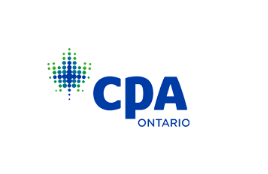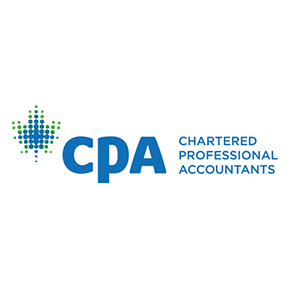Learn the expectations your professional appearance, decorum, body language make when meeting others. Because first impressions online are as important as in person.
It’s more important now to network, we don’t have the same opportunities to meet, attend and grow our client base, and develop professional relationships in the office. The work culture is mostly remote or from home offices during the pandemic. Therefore, it’s imperative to present ourselves, build trust and develop relationships remotely. Learn how to engage with our clients and grow our client base through networking virtually, in-person or in a hybrid situation.
Being persuasive is clearly one of the more important of the professional attributes. And yet, most professionals miss opportunities to capitalize on the emotional triggers that others use when making decisions. We’ll explore the subtle, yet powerful, persuasive strategies that increase the likelihood of others saying, ‘Yes’ to our compliance requests.
Creating and maintaining a positive emotional connection requires of us high emotional intelligence. Understanding the personalities of others and having the skills to adapt our own behaviors to create comfort is the key interpersonal awareness. Destroy the barriers that keep us apart and learn to emotionally connect with those with whom we interact.
Given our tech dominated professional world I’ve been heartened with the response to our delivery of an Emotional Intelligence based program called A.C.E.
Credit goes to the executive team who saw the value of rolling this program out across Canada. Credit also goes to the participants for their open appreciation of the value of this kind of professional development. It was good to hear the takeaways: enhanced empathy, rejuvenated curiosity, and increased patience as a few of the emotional elements they will be practicing with their private wealth clients.
With technology mediated communication growing, the greater the imperative to capitalize on our precious face-to-face interactions. It’s our ability to emotionally connect with clients that allows business and referrals to flourish.
Managing the impression you make and maximizing your ‘like-ability’ are the keys to making every networking opportunity consistently profitable. First impressions really are important. The way you greet people can set the tone for the entire interaction that follows. If you make a poor initial impression, you may spend the rest of your time overcoming it.
Meet and mingle with your colleagues while you learn from the pros. Brush up on the protocols of introductions, business card exchange, conversation management, and more. Learn the secrets to business development through rapport building.
Learn the simple skills of authentic client communication by knowing how to tap into the autobiographical urge of others. Asking the right questions at the right time builds your emotional foundation with existing, or prospective clients. Learn the skills necessary to overcome the obstacles that hold us back from making the invaluable connections that make us memorable. Give others the opportunity to tell their story and realize that money flows in the direction of biographical knowledge.
Appreciate the business case for re-awakening curiosity. Use the “six degrees of separation” phenomenon to find common ground and build lasting relationships. Being authentic in your desire to learn about others you meet is at the heart of competitive advantage. Do what your competition is not doing: dare to be authentically curious and watch business development flourish.
You provide superior customer service when you can identify your customers’ wants and then exceed them. But the question is; how do you identify your customers’ wants? You do this by watching for, identifying, and maximizing moments of truth. Once you see these windows of opportunity, you look for and analyse your customers’ meta-messages – the real messages they are sending. This is done by using such strategic communication techniques as active questioning and kinesic analysis. When you are able to identify, and then exceed your customers’ needs and/or wants, you have the tools for building and enhancing solid customer relationships. Inevitably though, some customers can be more challenging than others. We’ll also discuss ways to identify potential customer service problems before they turn into conflicts, and identify strategies that can effectively diffuse difficult situations.
The next phase of an excellent customer experience is communication that makes customers feel important and understood. Again, we teach how to communicate in a way that’s effective and supportive no matter what the circumstances. Making sure the customer knows you understand and care creates an open and honest climate, which allows for greater clarity, fewer misunderstanding, and enhanced productivity.
Learn to communicate via email and telephone to promote cooperation and effectively resolve issues that are deemed difficult. Recognize that conflicts will happen in the workplace; our goal, therefore, is to be at our best when it’s most required of us. Learn to use your positive attitude and communication skills to reduce tension, deal with emotion, and make for a more stress-free professional life.
Client negotiations can sometimes leave us feeling frustrated when we feel the client is being unreasonable. Our responses in these situations will have an impact on the present negotiations, engagement with the file, future business, and so on. Dealing with difficult clients requires that we be at our best under pressure. To engage clients with tact, diplomacy, skill, and compassion are the hallmarks of learned communication competence.
Our responses to these clients must be based on professional integrity and assertive communication while still maintaining a supportive communication climate.
We need to explore the underpinnings of unreasonable requests and behaviours in order to understand them and move ahead with supportive professionalism.
Networking is the set of communication skills required to build relationships, inform others, and learn from and about co-workers and clients. Managing the impression you make and maximizing your ‘like-ability’ are the keys to making every networking opportunity consistently profitable. First impressions really are important. The way you greet people can set the tone for the entire interaction that follows. If you make a poor initial impression, you may spend the rest of your time overcoming it. In this fun and interactive workshop, you will be given tips on putting your best foot forward with the right handshake, effective introductions, and presenting and requesting business cards with confidence. You’ll learn the differences between interacting in a large group venue versus the requirements of a more intimate setting. You’ll master the principles of impression management by exploring perceptual tendencies, the ins-and-outs of small talk, and the subtleties of office diplomacy.
Do your presentations have the impact you intend? Are you unsure what information should be included in, or omitted from, your presentations? Does your delivery grab and hold your audience’s attention? Do your words motivate audiences to action? Your executive image can be either built or undermined by your presentation abilities. This highly successful workshop will enhance your presentation skills and give you the insights you need to project a confident executive image in any speaking circumstance. We’ll cover everything you need to know to deliver any presentation with clarity, persuasiveness, and confidence. This course is designed for professionals with an emphasis on organizing your thoughts and data for maximum impact, developing visuals to enhance your message, and projecting competence through body language and voice.
A universal perceptual tendency is to “judge a book by its cover.” We form lasting opinions based on what we see. In fact, over half of the impression you convey to others is based on appearance. The look of credibility, composure and professionalism must accompany the message for an audience or client to accept it. You must be believed to be heard, and we believe what we see.
Be sure to send the full message by visually presenting your professional credibility. This seminar is about attaining a professional presence that, in all circumstances, speaks well of you. Learn how your body language, dress and personal style impact the decisions others make of you and your ideas.
In this seminar, we introduce the professional personal brand concept with the purpose of encouraging all workers (receptionists to CEOs) to take control of their own careers. Unlike a personal brand which focuses on self-interested aspects of one’s private life, a professional personal brand is service-minded and is uncompromisingly focused on one’s value to others. Conventional wisdom of impression management asserts the importance of acting and dressing for success, as all of our observed actions shape expectations of future behaviours.
As the lines between professional and personal reputations become blurred, it is important to know how to leverage social media to one’s professional advantage and to avoid the reputation-destroying outcomes of politically incorrect tweets, inapt Facebook postings, and errant instant messages. In this seminar, you will learn to reclaim, recast, or renew your personal brand with a focus on professionalism. A professional personal brand honors the greater good one has accomplished for others and conveys one’s capacity to contribute value to your network of colleagues, clients, and customers.
This highly successful seminar brings participants to new insights about themselves, their colleagues, and their customers. Learn to assess the interpersonal style of others, and learn how to maximize your communication approach to enhance effectiveness and persuasiveness.
Anyone who works at a desk knows the importance of good writing skills. This course is just what you need to write clear, concise business letters, memos, emails and reports. Professionally relevant activities and basic do’s and don’ts will have you writing like a pro as you discover the secrets to well-written sentences and learn how to quickly organize your thoughts.
Too much writing and too little time is the recurring challenge of the busy professional. Learning how to focus your main message and bring it to your readers’ immediate attention is key to fast and effective business writing.


